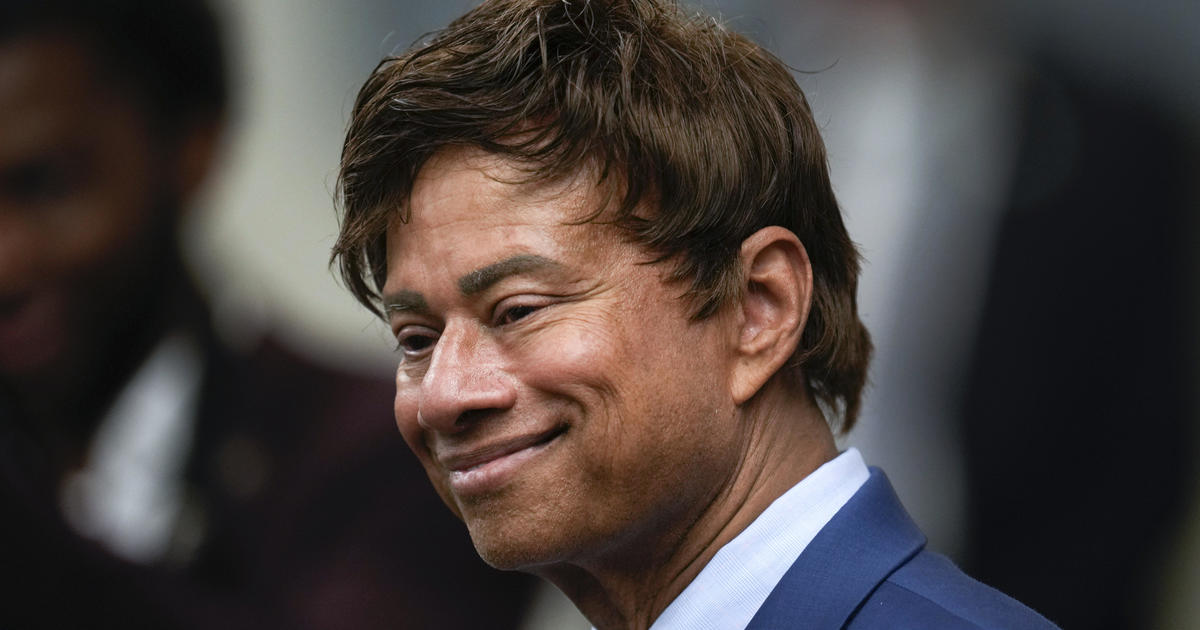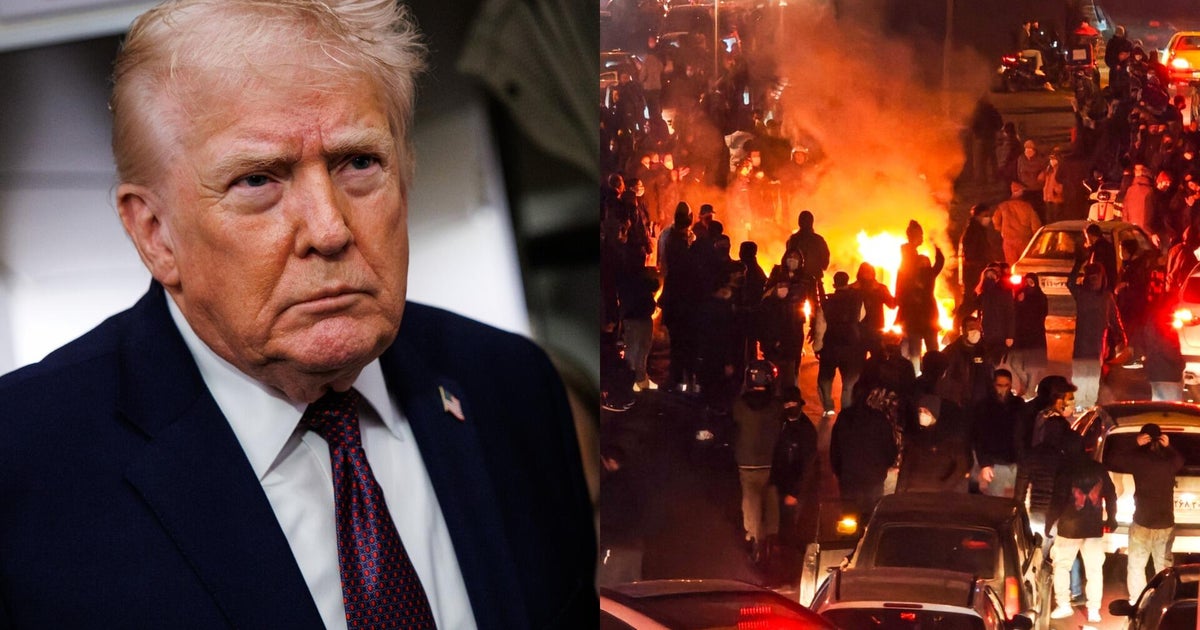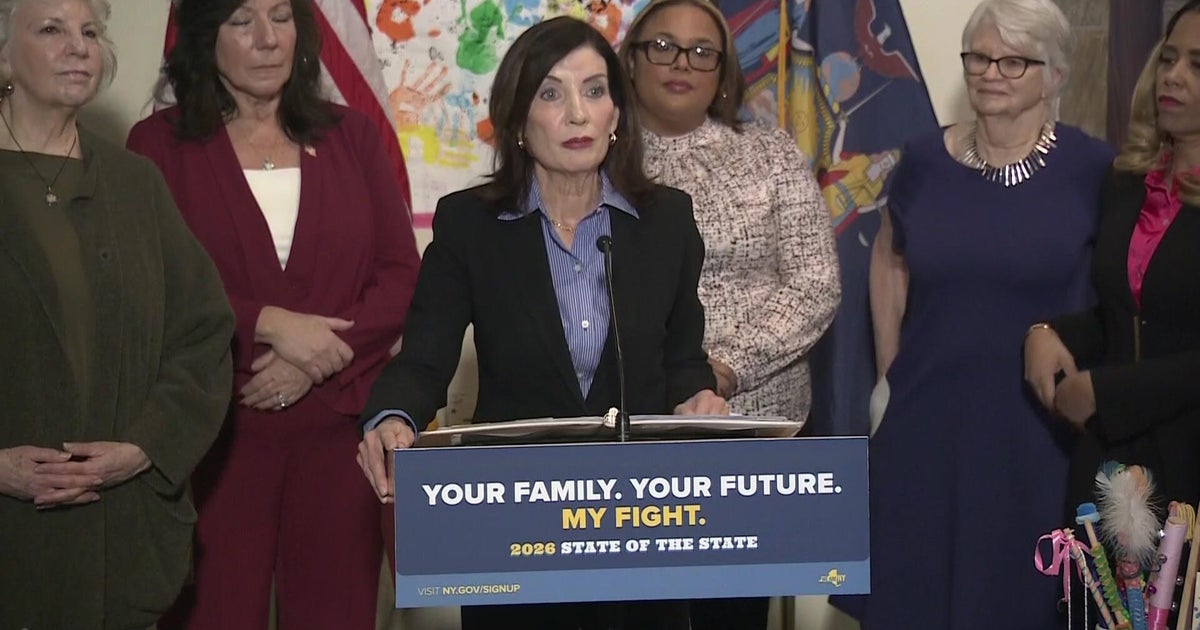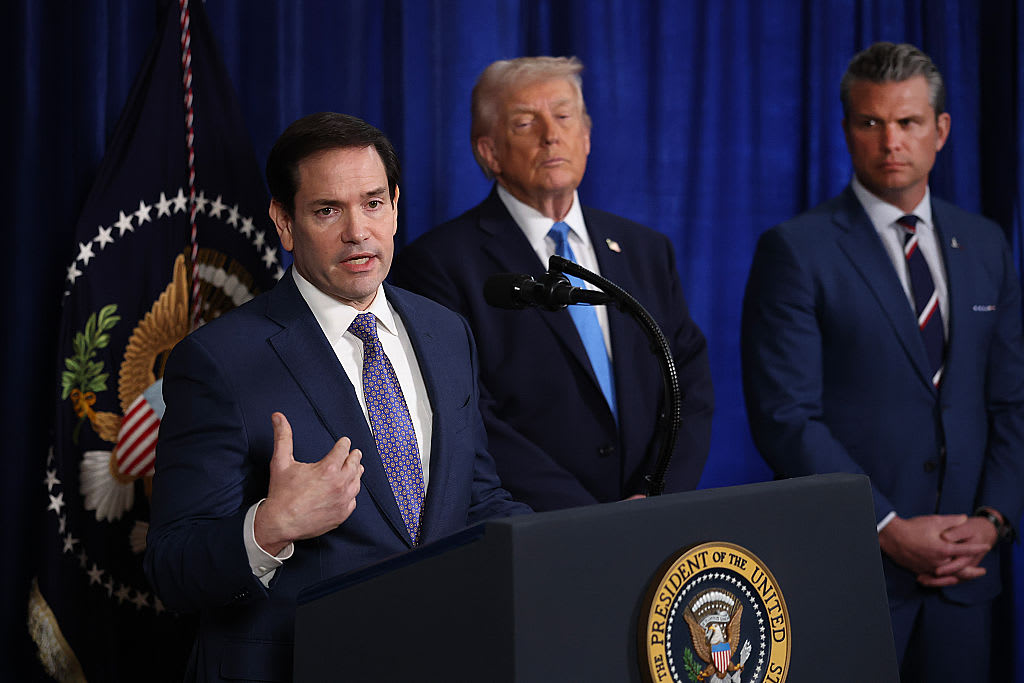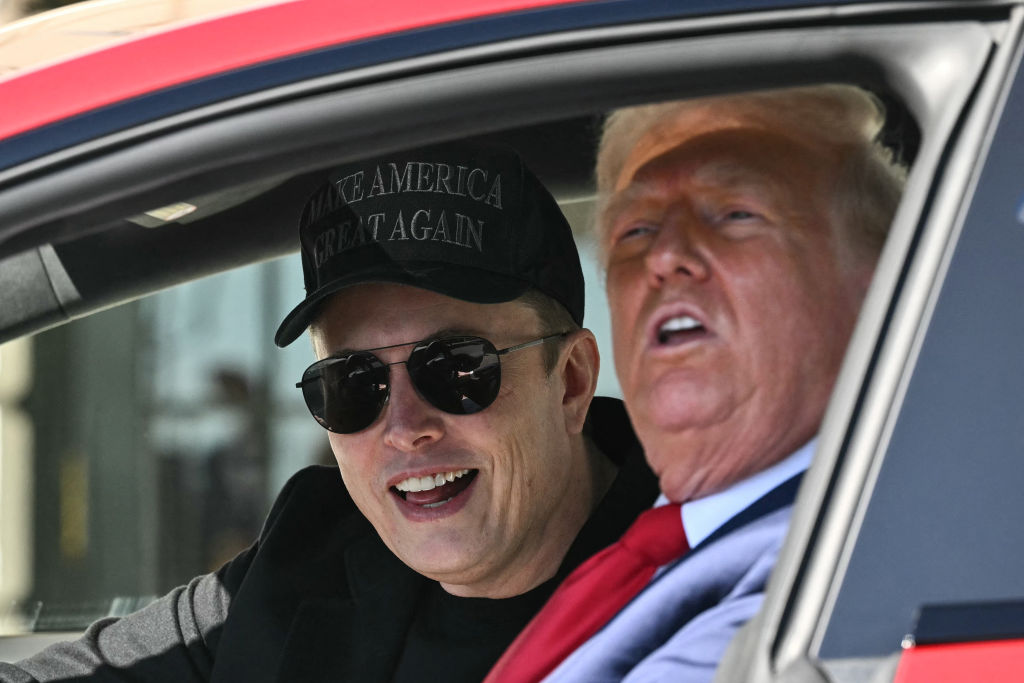Transcript: Fiona Hill and Chris Krebs on "Face the Nation," Dec. 11, 2022
The following is a transcript of an interview with Fiona Hill and Chris Krebs that aired Sunday, Dec. 11, 2022, on "Face the Nation."
MARGARET BRENNAN: Before we get to our next segment, a quick follow up. We asked the White House for a response to the Shargi family, and a spokesperson said that they have offered a meeting with the President's National Security Adviser Jake Sullivan, and they're working on scheduling it.
Turning now to national security. We want to welcome our panel of experts, former National Security Council Russia specialists Fiona Hill, and Chris Krebs, former cybersecurity and infrastructure security agency head and a CBS News analyst. They both worked together during the Trump administration. Good morning to you both.
CHRIS KREBS: Morning.
FIONA HILL: Morning.
MARGARET BRENNAN: Fiona, there's so much to get to but I want to ask about this prisoner swap. Your former colleague, John Bolton, your former boss right on the National Security Council, told one of my colleagues at CBS that the possibility of a Boot for Whelan trade existed back then, and it wasn't made for very good reasons having to deal with Victor Boot. Do you recall a potential prisoner swap with Russia?
HILL: Yes, I do recall that. That was raised many times by the Russians that they wanted Victor Boot. And at the time, there was also the drug smuggler, Yaroshenko, who was ultimately swapped for Trevor Reed, the other former Marine, they were put on the table by the Russians making it very clear that they had every intent of trying to swap Americans that have been wrongfully detained for individuals in United States custody who were there for pretty good reasons.
MARGARET BRENNAN: Do you see something particularly dangerous about Victor Boot? I mean, why was that swap turned down then, but it happened just this past week?
HILL: Well look, at the particular time, I also have to say here that President Trump wasn't especially interested in engaging in that swap for also Paul Whelan. He was not particularly interested in Paul's case in the way that one would have thought he would be. Ambassador Bolton met with Elizabeth Whelan, Paul's sister. I was at that meeting as well. There was a lot of attention being paid to this and trying to find ways of arranging Paul's release by all different parts of the US government. But of course, it was a big debate about Victor Boot himself. I mean, as we see now as well, the absurdity of the Russians asking for the release of a notorious arms dealer, as well as somebody who had been convicted of large scale narcotics smuggling, in return for American citizens who had been either setup in the case of Paul Whelan, and later imprisoned in the case of Trevor Reed and Brittney Griner for very minor infractions that would have been handled differently in different cases. It was clear that the Russians were looking to kind of set the United States up as well, for just the kinds of things that we're seeing now in terms of the roiling of domestic politics as Chairman Schiff talks about later. I mean this is all part of a political game for the Russian government.
MARGARET BRENNAN: And that's what you have been talking about, Chris, that the- the spin around this that has really electrified the political body in this country?
KREBS: Well, I, Putin is very much tap- tapped into the culture wars here, he understands the various levers and divisions that exist in American society. And, you know, given the fact that Russia does not have a whole lot going on here, their military clearly is underperforming on the field in Ukraine, economically, they are a bit of a you know, has been. This is one of the few areas that Putin still has influence and ability to shape the global narratives. And so this is one of those things where I think Americans traveling and as abroad, as soon as you leave the United States, you have to be very mindful of how you may fit into these, these information battles back and forth.
MARGARET BRENNAN: But it has become an attack point from Republicans, including the House Republican leader, that this swap took place for a Marine veteran left behind, but Fiona is you're making the point that that Marine veteran was left behind he was captured during the Trump administration. So you're arguing this is just disingenuous outcry essentially?
HILL: Look, what we have to bear in mind as in the previous segment, brought to the fore is we have a lot of American citizens who are being taken by other countries for political purposes–
MARGARET BRENNAN: President Biden called it a national emergency.
HILL: That's absolutely right. And as Chris is saying, every single American citizen who travels abroad, even, look allies in partner countries, if you get into trouble, there's only so much that the United States government can do for you. And when it is a state like Russia or Iran, or China or North Korea, I mean, some of them are more obvious than others, you are putting yourself at a certain degree of risk, even if you think you were just basically going farther for tourist purposes or to visit family or for something routine. Remember, Trevor Reid was going to visit his girlfriend. Paul Whelan was going to a wedding. And Brittney Griner was doing something that many other athletes do around the world, including Russian athletes here in the United States. If we think of Ovechkin for example, you know, playing one of the you know, the greatest hockey players here in the United States are playing in for Washington's best team. They were doing something that seemed routine, seemed completely ordinary, but found themselves snuggled up in basically political games. And we have to be mindful of the fact that when governments do this, they're doing it for trading purposes, but they're also doing it to mess about in our politics, and we're falling every single time for this, the more that we fight with each other, the more that we play into their hands. And we also risk other Americans being taken, because it's a way of influencing our domestic politics.
MARGARET BRENNAN: It's interesting, you connect all those dots there. I know, Chris, you- you have been watching just the conversation we have with ourselves on social media and how inflamed it is. When it comes to some of these more extreme groups. It's almost sometimes, it sounds so absurd and yet there are national security risks, as we saw in Germany this week with this extraordinary arrest and attempted coup in Germany by people linked to Q anon. I mean, it doesn't sound real. But it is.
KREBS: Well, the Q anon piece, I think it's a- it's a reminder, confirmation that Q anon is a global phenomenon that is catching on. And actually, I think in part, what we're seeing now is that it's broadening and it's almost becoming mainstream. We have this attempted coup in Germany, we have January 6th and the efforts to overturn the January 2020- or the 2020 election, that was Q adjacent as well. These things are catching on, and they're informing much more radical behaviors, both at a national level and as a local level. And I think, in part, some of the things that we're seeing with the attacks on the electrical grid, for instance, are- may not be Q, but they are extremists. They're online. They're white supremacist groups that are pulling down and developing playbooks. And so they're national level efforts, but they're also local level efforts. And a lot of this is just due to the broader information ecosystem, and how virulent these conspiracy theories and efforts to, you know, overcome normal civil society.
MARGARET BRENNAN: The Homeland Security Secretary said that it did appear in North Carolina, that attack was deliberate, but it's early. Are you saying you believe there is evidence that it is tied to organized domestic extremists?
KREBS: So that I think is-is still a large question mark, and the investigators are taking a look at but the attack itself on that facility, that substation in Moore County, was unquestionably deliberate the tactics they that the attackers used multiple, two different substations and then going in and targeting very specific critical equipment in that site. There's no question that it was premeditated, that it was coordinated, it was deliberate. Combine that with the fact that there were half a dozen similar sorts of events in the Pacific Northwest, there have been events in-in- throughout the southeast. So it says to me that there is something broader going on here. And perhaps we are paying more attention now. But- but there is a significant threat to the- to our nation's critical infrastructure. And right now, both the utility operators as well as law enforcement, I think are doing a hard look at what needs to change, and how do we counter this threat?
MARGARET BRENNAN: Fiona, when you were with us in October 2021, you said something that stuck in my brain ever since where you talked about the election cycles of 2022 and 2024 being potential vehicles for potential violence. And you call January 6, a dress rehearsal. Are you as concerned now, as you were then about the stability of the country?
HILL: I'm, let's just say, a bit more cautiously optimistic than I was back then. I mean, I think all alarms and red lights were flashing on every front for all of us at that particular juncture. And we've actually seen much more careful handling on every front of recent elections, including the midterms, people being more circumspect about what's happening. Of course, we've got the committee, we just had Chairman Schiff on the program, and the work that they're doing, which is, I think, played a very important role for a lot of Americans in sort of seeing how everything unfolded. And people are waking up to this- the risks of just so much acrimony in our politics. Now, it doesn't mean to say that we're out of the woods. And actually, as Chris was saying, we've got an awful lot of groups who've been fired up by all of this. And they also take inspiration from international events. And so it isn't a coincidence, as we've been talking about, you've had this coup attempt in Germany. And there are linkages among all of these events, because there are certain groups that flow backwards and forwards and they link on the internet, and they have personal direct connections. And so we are still in a dangerous time where we need to be vigilant and thinking about our resilience.
MARGARET BRENNAN: Thank you for connecting all those dots for both of you for us. We'll be back in a moment.

